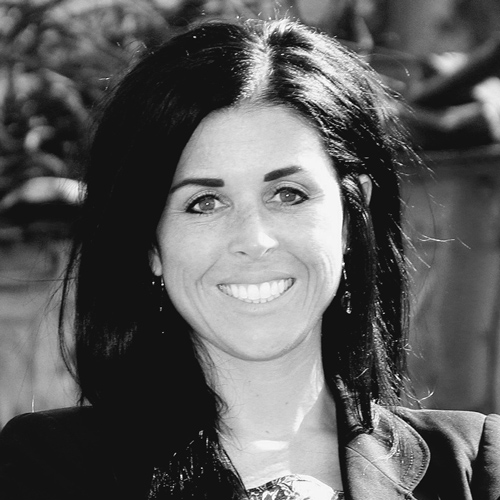
For most people, when it comes to insurance, cars, homes, and life come to mind. There is a very good chance that many people are not thinking of intellectual property (IP) insurance. That’s okay, because Intellectual Property Insurance Services Corporation (IPISC) is thinking about it plenty. For more than twenty-four years, the industry leader in IP insurance has protected its clients’ IP assets and provided them with top-notch underwriting and customer service.
Bob Fletcher, IPISC’s president and chief executive officer, saw the need for IP insurance while working in the investment banking industry. After he had earned his chemical engineering degree, Fletcher decided he wanted to do something different, so he went to law school and became a patent attorney. Following this, he changed gears and went into investment banking, where many of the deals he handled had a lot to do with intellectual property.
“Ultimately we recognized that though we were trying to license patents, copyrights, and trademarks, some people considered their intellectual property to be far too valuable to let others use,” he says. “So we said if it’s that valuable, it must be insurable. We faced the problem of how to insure IP and came to a conclusion that the way to do that was to create an insurance policy that provided for the enforcement of and the defense of IP lawsuits.” Thus, IPISC was created, and Fletcher and his team coined their motto: “We insure your patents and products against infringement.”
The constant evolution of the intellectual property industry has proven that a company like IPISC is necessary. In the late nineties, computer software became patentable, which coincided with the burst of the dot-com bubble and the subsequent backlog of patent applications at the patent office. When the office fell behind, it issued a lot of poor patents that were not examined very well and, in Fletcher’s opinion, should never have been issued.
Even though bad patents were all over the place, much of the industry had a “no harm, no foul” mentality, believing that the patent could be proven invalid and that would be end of it. Unfortunately, this mentality eventually proved costly. It led to the rise of “patent trolls,” people or companies that accuse entities of patent infringement and sue them for damages, even if their target’s product has nothing to do with the patent being asserted. Litigation was becoming more and more expensive at the time, and the trolls saw this as a business opportunity. A large number of these targeted inventors and companies opted to settle out of court because it was less expensive that going to court. The rise of patent trolls prompted IPISC to introduce the “Troll Defense” insurance policy to help companies defend these meritless infringement accusations.
Prior to the Troll Defense policy, IPISC got its start with the enforcement, or pursuit, policy to ensure companies have the funds to enforce their IP rights. This policy has proved crucial for smaller inventors, because they normally lack the resources to enforce their patents and protect their innovations. “[There’s so much copying going on] at this particular point in time that it is very difficult to succeed without some enforcement insurance policy or financial backer,” Fletcher says.
IPISC then entered the defense market, which has also proved crucial for companies. It is tough for companies to afford the cost of litigation at a time when competitors find it easier to litigate someone out of business rather than compete them out of business. “A way to get them out of business is to sue them for patent infringement, depleting their working capital, so they have to fold,” Fletcher says. “Intellectual property is now being used for something other than for what it was originally intended.”
As these bad patents began to expire, so have a lot of the patent trolls; however, that does not mean they have completely disappeared. Rather than looking for bad patents, patent trolls are now reaching out to small inventors who cannot afford to commercialize their inventions. They offer to pay for the patent, enforce it, and share in the revenue. “Surprisingly, in my view, you are beginning to see trolls that are being more legitimate, because they have patents that are more legitimate,” Fletcher says. “They are a source for people who cannot afford to enforce them. Part of that comes from the high cost of litigation.”
IPISC makes its living looking out for the “little guy” during claim time. For example, an insured client was involved in a trademark case as the defendant. The trademark in question involved the use of stripes on the side of sneakers—the client was going up against Adidas. The defense attorney bought sneakers to help with the defense, and IPISC received an invoice for $112,000 for shoes. It turned out that there was no good justification for the purchase, and more importantly, IPISC did not have to pay that bill. “[A bill for] $112,000 to send lawyers out to buy shoes to make this case did not seem like it was going to be very persuasive,” Fletcher says. “So we refused to pay that as not being part of the legitimate defense work that the lawyers did. As a result, the firm did withdraw that particular bill, because when the client also saw that we rejected it, they chimed in and said, ‘Yeah, us too. If our insurance company is not going to pay, we are not going to pay.’ That is the kind of thing we run into from time to time.”
Many insurance companies may say they are a full-service firm, but IPISC really is. Along with protecting clients from expensive litigation and enforcing patents, the company also “holds the pen” for the carrier. In other words, IPISC has permission to bind coverage without having to go back to the carrier for approval. In fact, IPISC is the only company in the world that can do this for an intellectual property insurance program.
“What we say is, ‘Let us carry the weight; leave it with us. You can complain if we are not making you money, but please do not come in and try helping,’” Fletcher says. “It’s been working out wonderfully well, but we also recognize that we are greatly complimented by people who will put that kind of trust in us, and we are very careful to guard against and be reasonable about what we do. We take every precaution that we can.”

